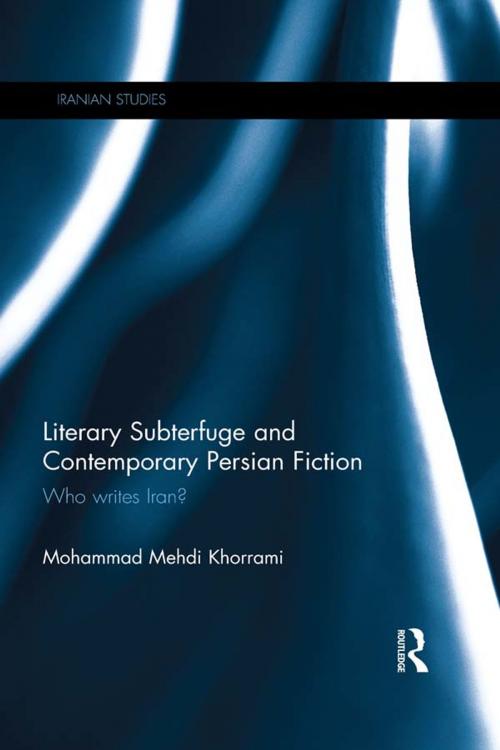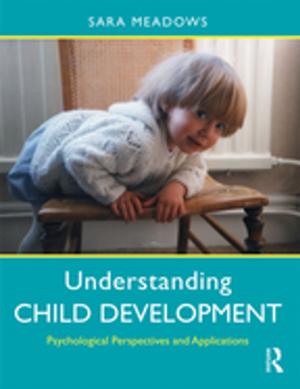Literary Subterfuge and Contemporary Persian Fiction
Who Writes Iran?
Nonfiction, Social & Cultural Studies, Social Science| Author: | Mohammad Mehdi Khorrami | ISBN: | 9781317668763 |
| Publisher: | Taylor and Francis | Publication: | September 25, 2014 |
| Imprint: | Routledge | Language: | English |
| Author: | Mohammad Mehdi Khorrami |
| ISBN: | 9781317668763 |
| Publisher: | Taylor and Francis |
| Publication: | September 25, 2014 |
| Imprint: | Routledge |
| Language: | English |
The main focus of Literary Subterfuge and Contemporary Persian Fiction is to identify components and elements which define Persian modernist fiction, placing an emphasis on literary concepts and devices which provide the dynamics of the evolutionary trajectory of this modernism.
The question of ‘who writes Iran’ refers to a contested area which goes beyond the discipline of literary criticism. Non-literary discourses have made every effort to impose their "committed" readings on literary texts; they have even managed to exert influence on the process of literary creation. In this process, inevitably, many works, or segments of them, and many concepts which do not lend themselves to such readings have been ignored; at the same time, many of them have been appropriated by these discourses. Yet components and elements of Persian literary tradition have persistently engaged in this discursive confrontation, mainly by insisting on literature’s relative autonomy, so that at least concepts such as conformity and subterfuge, essential in terms of defining modern and modernist Persian fiction, could be defined in a literary manner.
Proffering an alternative in terms of literary historiography; this book supports a methodological approach that considers literary narratives which occur in the margins of dominant discourses, and indeed promote non-discursivity, as the main writers of Persian modernist fiction. It is an essential resource for scholars and researchers interested in Persian and comparative literature, as well as Middle Eastern Studies more broadly.
The main focus of Literary Subterfuge and Contemporary Persian Fiction is to identify components and elements which define Persian modernist fiction, placing an emphasis on literary concepts and devices which provide the dynamics of the evolutionary trajectory of this modernism.
The question of ‘who writes Iran’ refers to a contested area which goes beyond the discipline of literary criticism. Non-literary discourses have made every effort to impose their "committed" readings on literary texts; they have even managed to exert influence on the process of literary creation. In this process, inevitably, many works, or segments of them, and many concepts which do not lend themselves to such readings have been ignored; at the same time, many of them have been appropriated by these discourses. Yet components and elements of Persian literary tradition have persistently engaged in this discursive confrontation, mainly by insisting on literature’s relative autonomy, so that at least concepts such as conformity and subterfuge, essential in terms of defining modern and modernist Persian fiction, could be defined in a literary manner.
Proffering an alternative in terms of literary historiography; this book supports a methodological approach that considers literary narratives which occur in the margins of dominant discourses, and indeed promote non-discursivity, as the main writers of Persian modernist fiction. It is an essential resource for scholars and researchers interested in Persian and comparative literature, as well as Middle Eastern Studies more broadly.















